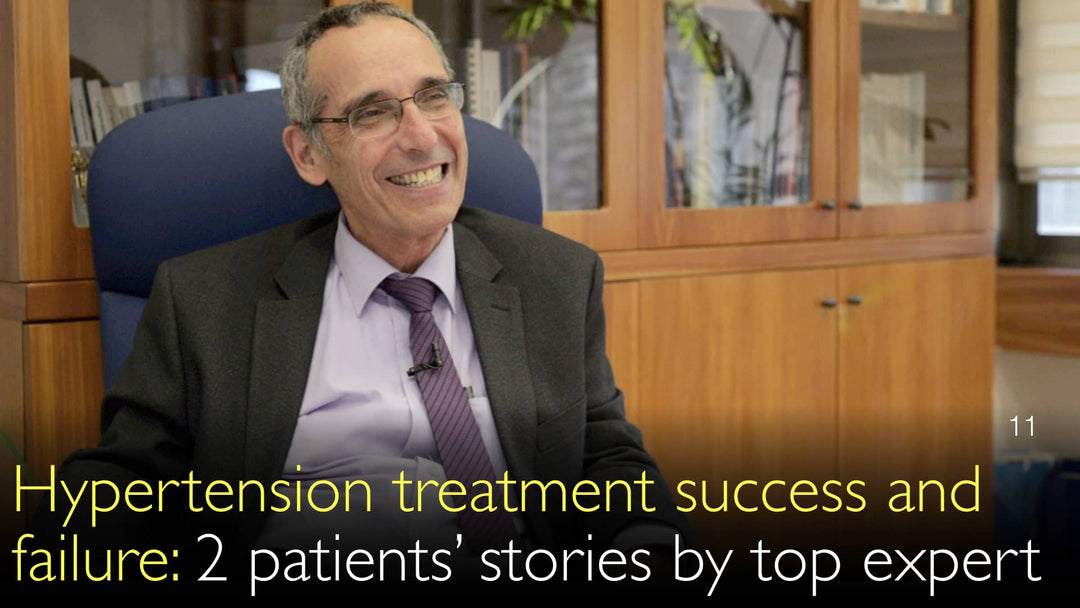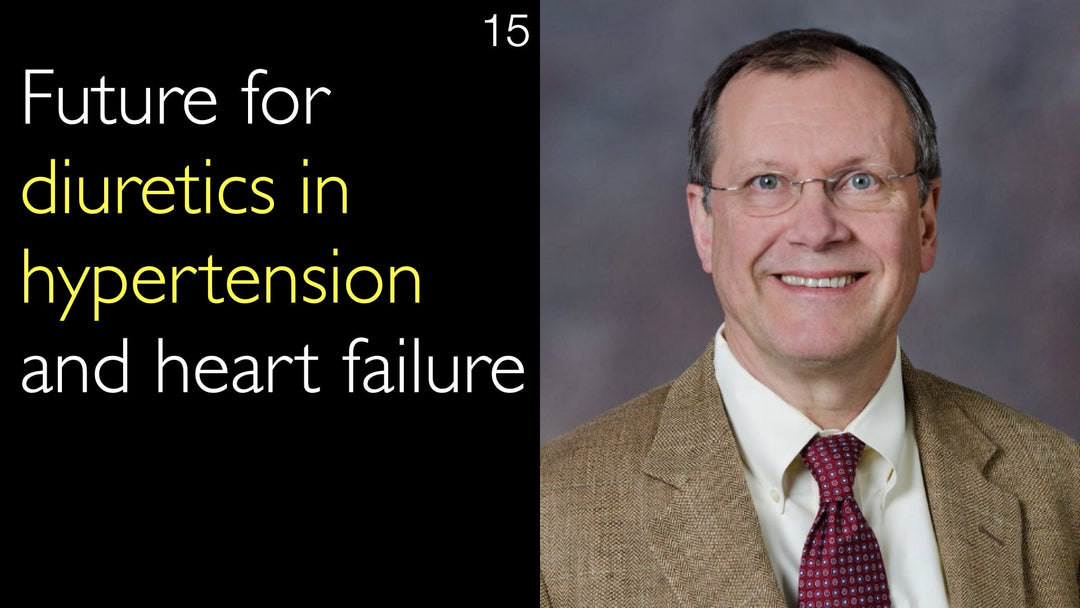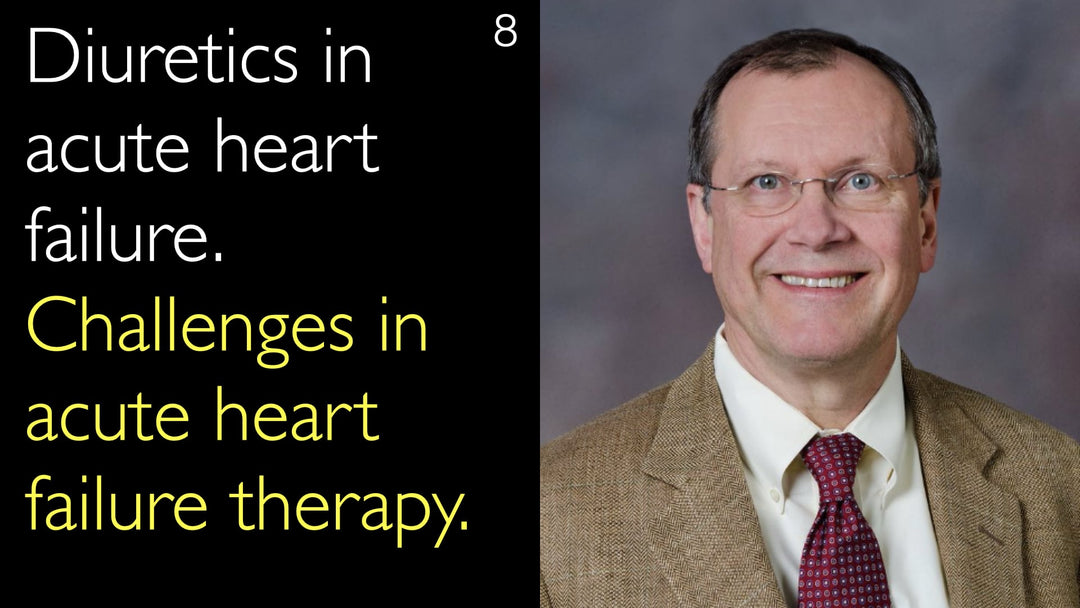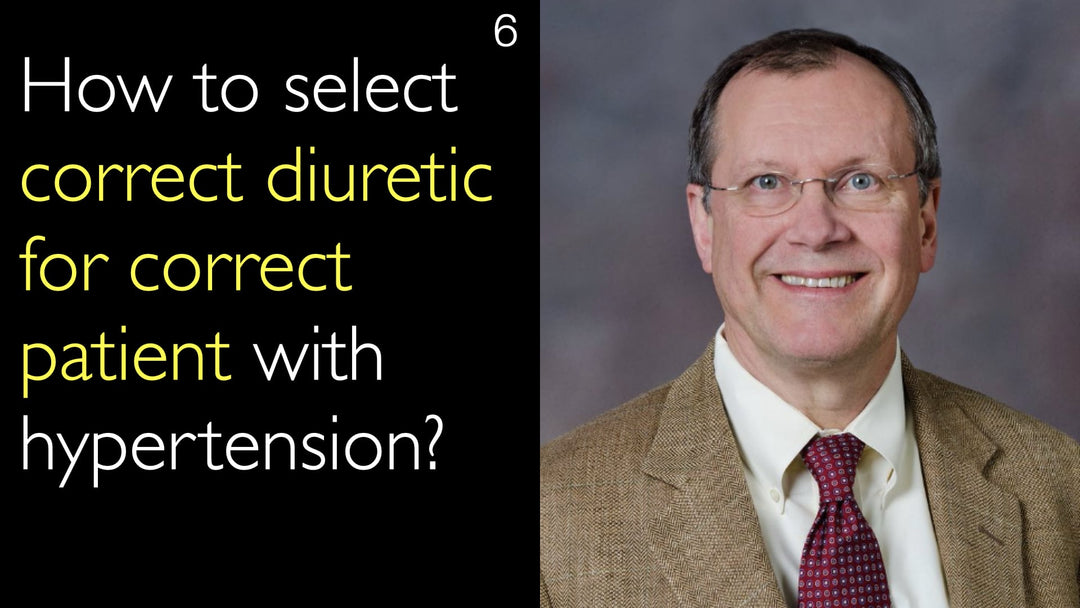Leading expert in hypertension and cardiology, Dr. Ehud Grossman, MD, explains the life-saving importance of blood pressure control. He shares two powerful clinical cases that illustrate treatment success and failure. Dr. Ehud Grossman, MD, emphasizes that uncontrolled hypertension leads to irreversible organ damage, stroke, and death. He states that with patient compliance, blood pressure can be controlled in 90-95% of patients. The conversation underscores that the perceived risks of medication are far outweighed by the real risks of untreated high blood pressure.
Hypertension Treatment Success and Failure: Real-World Case Studies
Jump To Section
- Long-Term Hypertension Treatment Success
- Consequences of Untreated Hypertension
- Importance of Blood Pressure Control
- Patient Compliance in Hypertension Management
- Weighing Medication Risks vs Benefits
- Full Transcript
Long-Term Hypertension Treatment Success
Dr. Ehud Grossman, MD, presents a compelling case of long-term hypertension treatment success. He describes a 60-year-old male patient with severe hypertension, diabetes, and target organ damage. The patient's systolic blood pressure was 200 mmHg. Dr. Grossman prescribed a four-drug antihypertensive regimen. This aggressive treatment approach successfully controlled the patient's high blood pressure for decades.
The patient lived an additional 30 years, passing away from cancer at age 90. Crucially, he avoided hypertension-related complications like myocardial infarction or stroke. This case demonstrates that effective blood pressure management can add decades of quality life. Dr. Anton Titov, MD, and Dr. Grossman discuss how this outcome highlights the profound benefits of consistent treatment.
Consequences of Untreated Hypertension
Dr. Ehud Grossman, MD, contrasts the success story with a tragic case of untreated hypertension. He recounts the story of a close friend who had both hypertension and diabetes. This individual was non-compliant with his prescribed antihypertensive medications. Despite warnings from an ophthalmologist about hypertensive changes in his eye blood vessels, he continued to neglect his treatment.
The consequences were devastating and irreversible. The patient suffered a fatal subarachnoid brain hemorrhage, a direct consequence of uncontrolled high blood pressure. Dr. Ehud Grossman, MD, emphasizes this point during his discussion with Dr. Anton Titov, MD. This case serves as a stark warning that the damage from hypertension is often silent until a catastrophic event occurs.
Importance of Blood Pressure Control
Dr. Ehud Grossman, MD, stresses that controlling blood pressure is a non-negotiable aspect of preventive medicine. Hypertension is often a silent killer, causing no pain or obvious symptoms while inflicting severe damage. Dr. Ehud Grossman, MD, explains that once a complication like a stroke happens, the damage is permanent. There is no opportunity to reverse paralysis or other disabilities by starting treatment later.
Dr. Grossman's clinical experience shows that life presents enough external risks, such as accidents. Therefore, controlling a modifiable risk factor like high blood pressure is essential. He advises patients not to challenge their lives by ignoring a treatable condition. This philosophy is a central theme in his conversation with Dr. Anton Titov, MD.
Patient Compliance in Hypertension Management
Patient compliance is the cornerstone of successful hypertension management. Dr. Ehud Grossman, MD, states that with patient adherence to medication, blood pressure control is achievable in 90% to 95% of cases. The treatment goal may not always be the ideal under 130/80 mmHg for every patient. However, achieving a controlled pressure below 140/90 mmHg is a significant and life-extending victory for most.
Dr. Ehud Grossman, MD, highlights that non-compliance is a major barrier to effective care. The case of the cantor who died of a brain hemorrhage is a direct result of treatment non-adherence. Dr. Anton Titov, MD, and Dr. Grossman agree that educating patients on the critical importance of taking their medication is a vital part of the clinical process.
Weighing Medication Risks vs Benefits
A key discussion point between Dr. Anton Titov, MD, and Dr. Ehud Grossman, MD, is rationally weighing medication risks against benefits. Dr. Grossman addresses a potential concern from his first case—that long-term antihypertensive use might be linked to cancer. He argues that this perceived risk is vastly outweighed by the certain benefit of preventing stroke, heart attack, and death.
Hypertension treatment decisions must be based on large-scale clinical data, not isolated fears. The proven benefit of lowering arterial blood pressure is preventing catastrophic cardiovascular events. Dr. Grossman's message is clear. The real risk is the untreated disease itself, not the medications that effectively control it.
Full Transcript
Dr. Anton Titov, MD: Dr. Grossman, is there a clinical case that you could think of that could illustrate some of the topics we discussed today on hypertension treatment in the setting of metabolic syndrome and obesity?
Dr. Ehud Grossman, MD: The best example I can give is from 20 or 30 years ago. A patient who was 60 years old at the time came to me. He was diabetic and had severe hypertension, with a systolic blood pressure of 200. He had all the side effects of hypertension—target organ damage, left ventricle hypertrophy, and mild renal failure.
I gave him four drugs to lower his blood pressure. He died only recently when he was 90 years old, without even having a myocardial infarction or stroke. He died of cancer. Of course, you could say that anti-hypertensive medications exposed him to cancer, but without the medications he would not have lived even five years.
He would have died at the age of 65 or 70, but he survived to 90 and was alert and active. Unfortunately, he died of cancer. You have to die of something, so he died of cancer.
That gives you an example of how important it is to control blood pressure. You cannot rely on a single case for hypertension treatment decisions; you have to rely on big data and see the benefit of lowering arterial blood pressure.
I believe that if the patient is compliant, in about 90 to 95% of patients I can control blood pressure, even if not to 130 over 80, then to 140 over 90 in most cases.
I think that's a very important story because it underscores how and why it's important to weigh real risks as opposed to perceived risks. If something does not cause pain or any other symptom, it doesn't mean it doesn't carry significant risks, like hypertension.
You cannot go back—once you have a stroke, that's it. You are handicapped, you are paralyzed. You cannot go back and say, "Oops, I want to live again and take anti-hypertensive medication." It's too late!
You see so many patients who didn't treat high blood pressure. Just recently, between Rosh Hashanah and Yom Kippur several months ago, I had a good friend of mine. He was a cantor, a well-known person. He had hypertension and diabetes.
He didn't take his medications and told everyone that I was controlling his blood pressure, but I didn't treat him at all. Then he went to an eye doctor, an ophthalmologist, who said, "Oops, you have changes in the blood vessels in the eye and you have to be careful and control your blood pressure." He said, "OK, it will be OK."
Then he traveled to the United States and died of a subarachnoid brain hemorrhage. This was definitely a consequence of untreated hypertension. So don't challenge your life!
You have to take medications and lower your blood pressure. Life has enough external risks—accidents, whatever it is. If you can control something and prevent diseases, do it.
Dr. Anton Titov, MD: Yes! Dr. Grossman, is there anything else you'd like to talk about? Are there any questions that I should have asked and didn't ask?
Dr. Ehud Grossman, MD: I think you've covered the topic of hypertension well enough for everyone. If someone has more questions, they can contact me, and I would be happy to help and give answers.
Dr. Anton Titov, MD: Dr. Grossman, thank you very much for this conversation! I very much appreciate it and look forward to continuing to read your research and sharing your data with patients around the world.
Dr. Ehud Grossman, MD: Thank you! My pleasure!







